Fayetteville State and 3 more NC colleges offered low tuition. What’s been the impact?
When Fayetteville State University became the fourth school in the UNC System to offer students heavily discounted tuition as part of the NC Promise Tuition Plan, Chancellor Darrell Allison described it as a “game-changer.”
NC Promise — which launched with Elizabeth City State University, Western Carolina University and UNC Pembroke participating in 2018 before Fayetteville State joined last fall — offers undergraduate tuition at $500 per semester for in-state students and $2,500 for out-of-state students.
The plan is largely considered a one-of-a-kind “promise” program, in that it offers those tuition rates universally; students do not need to demonstrate financial aid, nor prove academic merit beyond being accepted to the universities, to receive the discount. The state legislature provides funds to the universities to supplement the income they lose from collecting lower tuition rates.
Fayetteville State, along with Winston-Salem State University, had been part of lawmakers’ original proposal to implement NC Promise in 2016, but dropped out due to fears that the program’s hefty cost to the state could leave historically Black colleges, specifically, in a vulnerable place financially.
Now, a year into Fayetteville State’s delayed entry to the plan, Allison said there’s “no doubt” it has provided much-welcomed financial assistance to students and their families and aided in an enrollment increase.
Speaking to The News & Observer, each NC Promise chancellor highlighted benefits of the program, measuring its impact in different, wide-ranging ways — from the rapid gains seen at Fayetteville State, to even saving one, Elizabeth City State, from nearly closing nearly a decade ago.
But to Allison, NC Promise is just one piece of Fayetteville State’s larger commitment to making college education affordable and accessible — and to making sure students who are attracted to the university because of those factors complete their degree.
“We didn’t just rest on our laurels with NC Promise,” Allison told The N&O in an interview, adding that he and his staff have worked to “leverage the opportunity” being added to NC Promise presented to the university.
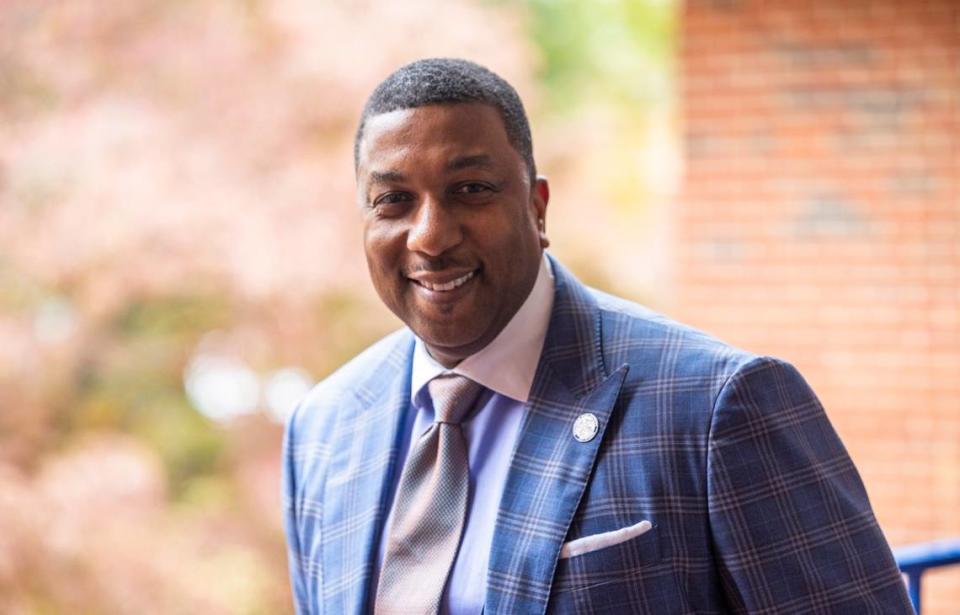
Since Allison became the chancellor of Fayetteville State in 2021, the university has implemented several programs — in addition to becoming an NC Promise school — that he says are contributing to improved student recruitment and retention. That includes an offer of free tuition to military-affiliated students, which launched last February, and another offer of free summer-school courses, which saw an enrollment of nearly 66% of the university’s students this summer, among several others.
Early numbers appear to support Allison’s claims.
This fall, the university is seeing its largest first-year student enrollment since 2007, at nearly 800 students. The university’s retention rate has increased to nearly 78%, up from about 63% in 2020. Overall, enrollment is up 10% — the second-highest enrollment increase of any of the four NC Promise schools — since the university joined the discounted tuition plan, according to a UNC System report released last month.
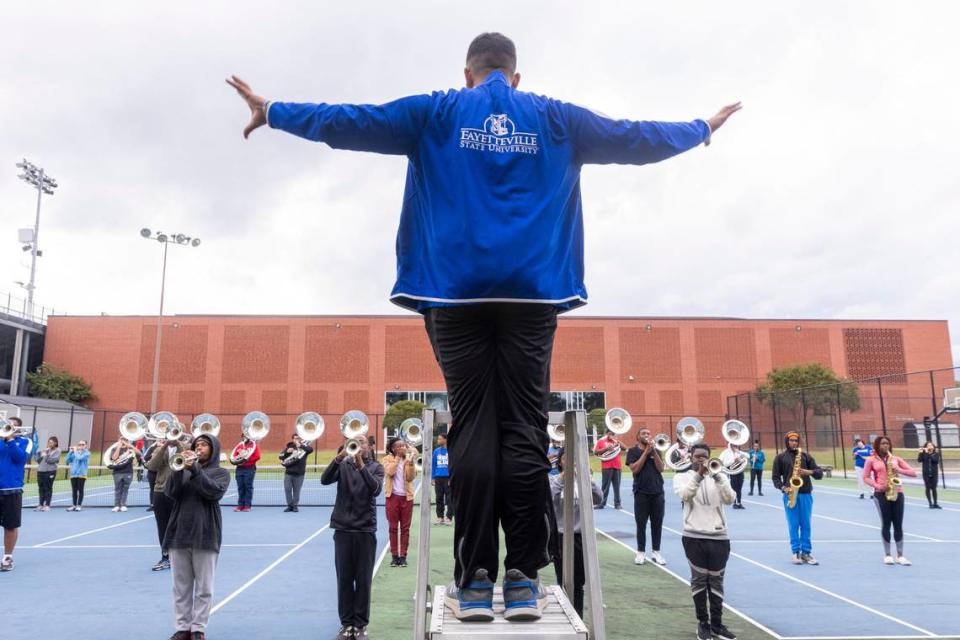
Defining success at NC Promise schools
With just one full year, plus this fall semester, of data, and other programs simultaneously at work, it’s largely too early to chart the full, sustained impact of NC Promise alone at Fayetteville State.
“The policy world moves quickly. The research world is much slower, unfortunately,” Daniel Klasik, a professor at the UNC-Chapel Hill School of Education who has analyzed enrollment data for the three universities that began offering NC Promise tuition rates in 2018. Since Fayetteville State was approved to join the program years later than the three original schools, Klasik’s research does not yet include analysis of FSU enrollment data.
Still, with Fayetteville State in just its second year of the NC Promise program, and the three original participating schools in their sixth, the UNC System has dubbed the program “a success on multiple fronts,” citing college affordability, as well as increased enrollment at three of the four schools: FSU, WCU and ECSU.
Klasik’s research, which used “comparison schools” with similar characteristics and growth trends to those at ECSU, WCU and UNCP to understand what would likely have happened to enrollment at the NC Promise schools if the program had not existed, found only “small, suggestive evidence” that the program increased first-year student enrollment, he told The N&O.
But a more concrete increase was seen in transfer-student enrollment, Klasik said. UNC System enrollment data shows that new transfer-student enrollment increased drastically — in one case, at UNCP, by more than 300 students — at the Promise schools in their first years participating in the program, and has continued to remain above pre-program levels.
Klasik said that trend likely stems directly from the low tuition, which provides a cost of attendance that is relatively similar to what students might pay at a community college.
“The cost proposition looked much better for those students because, essentially, they can continue their education for, basically, the same price as what they were getting already at their community college,” Klasik said.
Allison said FSU’s participation in NC Promise, as well as the other programs the university offers, has lifted the university’s rankings in UNC System retention and graduation rates.
“I’m not saying that we’re going to be first in the UNC System retention and graduation rates, but we’re not going to be last,” Allison said. “We can do better.”
Klasik’s research did not find an increase in retention rates, he said. But that isn’t necessarily negative, he said, since it shows NC Promise students “are succeeding just as well as the students in the past.”
Impact of adding FSU to NC Promise
Like Allison, each chancellor sees room to do more with the opportunities that NC Promise provides their universities.
College enrollment decreased nationwide during the COVID-19 pandemic, and North Carolina is seeing a decrease in the share of high school graduates who enroll in college. NC Promise schools weren’t immune to those pressures.
Enrollment at UNC Pembroke is down 2% overall since NC Promise began, according to a UNC System presentation last month. Jennifer Haygood, the system’s chief financial officer, told members of the Board of Governors that trend can likely be attributed to the larger decline in college-going students and other demographic shifts, which are “more acute” in the region of southeastern North Carolina that UNCP serves.
Originally established as a school to train American Indian teachers, UNCP remains highly diverse today, with a majority non-white student body that was almost 14% American Indian in 2020.
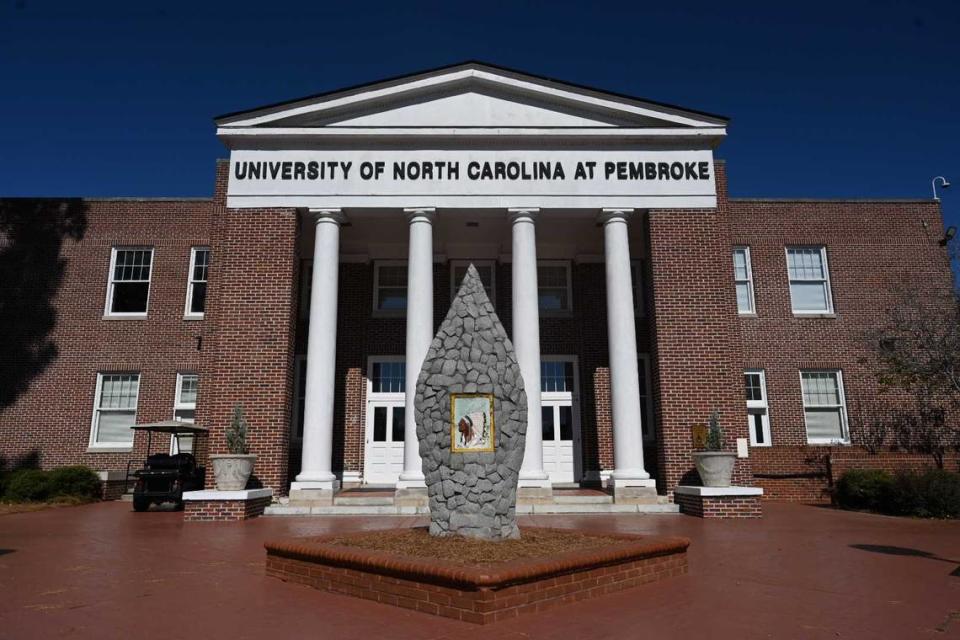
Haygood also said the system sees “some evidence” that the addition of Fayetteville State, about 40 miles from UNCP, to NC Promise could be drawing some students to FSU that might have otherwise chosen to attend UNCP, since they serve many of the same counties.
UNCP Chancellor Robin Cummings said his university has seen just a small decrease, roughly 1%, in the number of students from Cumberland County, home to Fayetteville, who have enrolled at UNCP.
“It’s not like it’s night and day and just a draconian, big impact, but clearly, students who live in Cumberland may say, ‘Well, gosh, I can go over here to FSU now and get the Promise deal,’” Cummings said.
Allison, of Fayetteville State, said “there’s no competition” between the two schools, and both chancellors said they are focused on unique offerings to continue to recruit and retain students on their campuses. Among many other offerings at their universities, Allison highlighted an increased focus on serving military-affiliated students at Fayetteville State, due to its proximity to Fort Liberty, while Cummings highlighted a new doctoral program in nursing at UNCP that creates a pathway to the profession beginning in a student’s undergraduate studies.
Smallest and largest NC Promise schools
The other two universities in the NC Promise program, Western Carolina and Elizabeth City State, are the plan’s largest and smallest schools by enrollment, respectively.
Though they are separated by a difference of nearly 8,000 undergraduate students, chancellors at both universities noted they are uniquely positioned — literally — to reap some of the same rewards. As the two NC Promise schools near the far western and eastern borders of the state, they can recruit out-of-state students almost as easily as those in-state.
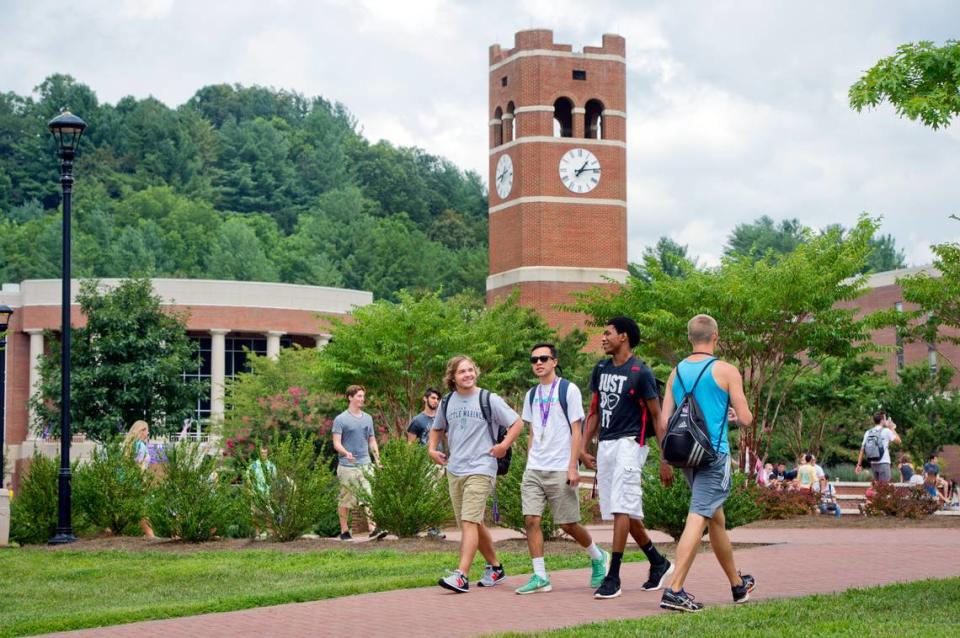
The UNC System last fall increased the cap on the percentage of out-of-state students several universities, including all of the NC Promise schools, can enroll. FSU, UNCP and WCU are allowed to admit up to 25% of their first-year undergraduate classes with out-of-state students, while ECSU is allowed to admit up to 50%.
Haygood, the UNC System CFO, noted to the Board of Governors last month that “on a percentage basis, enrollment has grown more quickly on the non-resident side” across the NC Promise schools.
“I think it’s helping us with the challenges of overcoming geography,” WCU Chancellor Kelli Brown noted to The N&O when listing several impacts of NC Promise at the university in Cullowhee.
Western Carolina has seen a 7% overall increase in enrollment since the program began, and Brown said the university’s Brinson Honors College, specifically, has seen an increase in out-of-state enrollment.
“Being the largest NC Promise school allows us to accommodate more students, and so I think that’s one of the positive things,” Brown said. “It gives more students a chance to be able to earn a college degree.”
Though it remains the smallest NC Promise school, perhaps the program’s biggest successes can be seen at Elizabeth City State, which was on the brink of closing due to drastically declining enrollment about a decade ago. Since NC Promise began in 2018, enrollment at ECSU is up 48% — the highest of any of the four participating schools.
It’s a trend that some leaders may have never expected when the program was introduced to mixed reactions in 2016.
This academic year alone, it will cost more than an estimated $74 million for the state to “buy down,” or “essentially fill the gap between the regular tuition rate and this special NC Promise tuition rates,” Haygood told Board of Governors members last month.
“There were some people who were a little skeptical about NC Promise,” ECSU Chancellor Karrie Dixon told The N&O of the program’s origins. “What will it do? What will it not do? And you know, how will it be beneficial?”
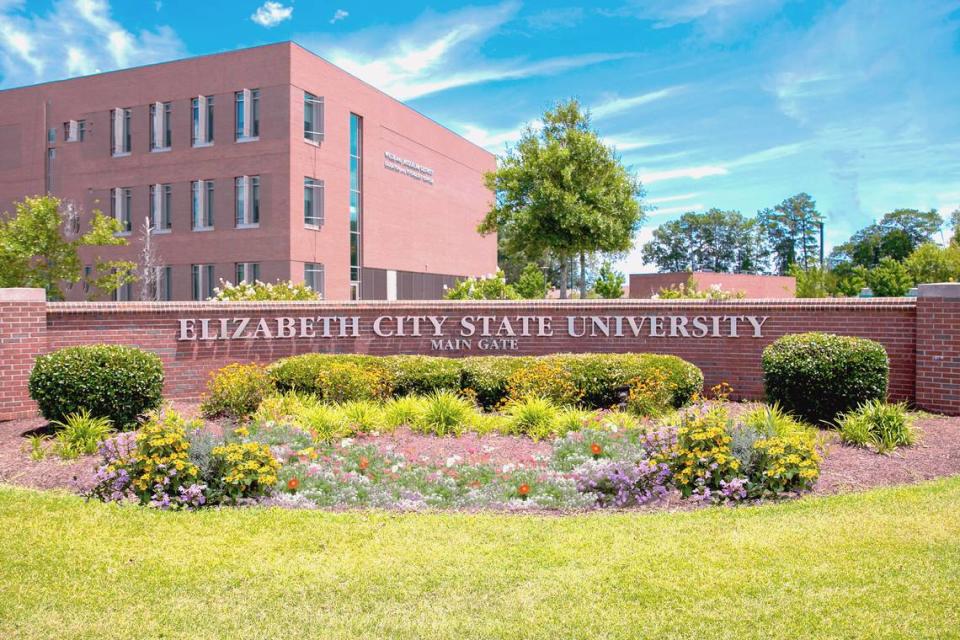
Now, Dixon said, the story is clear: “ECSU has greatly benefited from NC Promise. I thank the legislature for putting it in place.”
Like Western Carolina, ECSU has seen an increase in out-of-state enrollment, Dixon said, notably from Virginia, immediately to the north. The university has seen a 95% increase in students from that state since NC Promise began, Dixon said.
“We’re pretty much out there on our own in northeastern North Carolina,” Dixon said, noting that the closest UNC System campus to ECSU is East Carolina University, almost 100 miles away. “We’re also considered a border campus because how of how close we are to Virginia, and NC Promise has helped us to boost our momentum” recruiting students from there.
Despite the large price tag associated with NC Promise, each chancellor said they hope the legislature continues to invest in the program.
“I think the data will prove itself of its return on investment on these institutions that are NC Promise campuses, and I hope that the General Assembly considers continuing to invest so that we are able to offer access to quality education at an affordable price to North Carolina citizens,” Dixon said. “I’m really excited about that possibility, just because of the story that we can tell about the impact of NC Promise is very positive. We have the data to prove that.”

